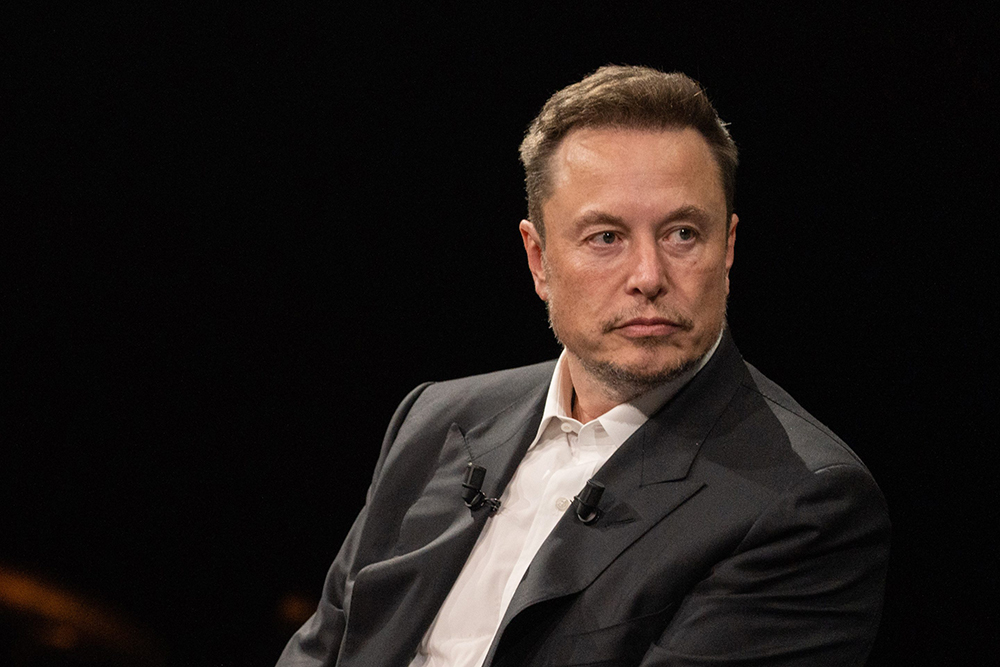
埃隆·馬斯克是OpenAI的聯合創始人,這家公司開發出熱門人工智能聊天機器人ChatGPT。后來因為與首席執行官薩姆·奧爾特曼和董事會的沖突,馬斯克離開了這家公司。現在,他宣稱自己的人工智能公司xAI將與OpenAI展開競爭,實現開發超級人工智能這個崇高的目標。
7月14日,全球首富馬斯克在Twitter Spaces接近兩個小時的訪談中,談論了公司創造通用人工智能(AGI)的目標,即智力水平至少不低于人類的人工智能。
馬斯克在訪談里說:“xAI的首要目標是開發一款良好的通用人工智能,主要目標只是努力了解宇宙。開發人工智能最安全的方法實際上是創造擁有最大限度好奇心和追求真相精神的人工智能。”
這位特斯拉(Tesla)的首席執行官還表示,影響未來是他經營xAI的出發點之一,因為他不想在這場人工智能競賽中成為旁觀者。他解釋稱,觀眾無法決定“結果”。
通用人工智能的概念通常是可以執行人類可執行的任何任務的機器,且其智力水平與人類相當。通用人工智能一直是科幻小說中的主題,被描繪成對人類生存的威脅,它的智慧和自主意識足夠毀滅人類。馬斯克認為通用人工智能的出現是“不可避免的”,因此他希望參與其中,確保通用人工智能的開發符合他的標準。
馬斯克還指出,一家公司壟斷人工智能的“單極”未來并不可取。在他發表這番言論之前,OpenAI于7月5日發布了一篇有關超級人工智能的博客,文中也預測通用人工智能是不可避免的,甚至可能在十年內誕生。
OpenAI的聯合創始人伊利亞·蘇茨克維爾和同事簡·萊克寫道:“目前,我們沒有操控或控制超級人工智能和避免其行為失常的解決方案。人類無法可靠地監控比我們更聰明的人工智能系統。”
OpenAI的奧爾特曼對于他協助開發的技術,也發表了類似的世界末日般的言論,他把超級人工智能的威脅與新冠疫情和核戰爭相提并論。他還擔心“獨裁政權”獲取這項技術,可能利用它危害全世界。
馬斯克的觀點卻截然相反。他認為,超級智能的通用人工智能只要對人類產生好感,它實際上將是對人類最友好的技術。
馬斯克在Twitter Spaces的訪談中說:“我之所以認為擁有最大限度好奇心和追求真相精神的人工智能是最安全的,是因為我的理論是對超級人工智能而言,人類遠比非人類有趣。太陽系的所有行星、月亮以及小行星,這一切加起來都沒有人類有趣。”
這位億萬富翁表示,如果xAI創造的機器聰明到認為人類比太空中的隕石更有趣的程度,我們就有生存的機會。他的理論讓人回想起1967年的短篇小說《無聲狂嘯》(I Have No Mouth, and I Must Scream)。這篇小說講述了一臺名為AM的超級計算機摧毀了整個世界,消滅了所有人類,最后只有五位不幸的幸存者。AM消滅并徹底掌控全世界之后,將不斷折磨五位人類幸存者作為唯一的娛樂(或復仇)形式。
馬斯克努力開發的“擁有最大限度好奇心”的超級人工智能,可能會發現人類是有趣的,但如果生活像藝術作品中的場景一樣,最終人類可能依舊要面臨負面的后果。(財富中文網)
譯者:劉進龍
審校:汪皓
埃隆·馬斯克是OpenAI的聯合創始人,這家公司開發出熱門人工智能聊天機器人ChatGPT。后來因為與首席執行官薩姆·奧爾特曼和董事會的沖突,馬斯克離開了這家公司。現在,他宣稱自己的人工智能公司xAI將與OpenAI展開競爭,實現開發超級人工智能這個崇高的目標。
7月14日,全球首富馬斯克在Twitter Spaces接近兩個小時的訪談中,談論了公司創造通用人工智能(AGI)的目標,即智力水平至少不低于人類的人工智能。
馬斯克在訪談里說:“xAI的首要目標是開發一款良好的通用人工智能,主要目標只是努力了解宇宙。開發人工智能最安全的方法實際上是創造擁有最大限度好奇心和追求真相精神的人工智能。”
這位特斯拉(Tesla)的首席執行官還表示,影響未來是他經營xAI的出發點之一,因為他不想在這場人工智能競賽中成為旁觀者。他解釋稱,觀眾無法決定“結果”。
通用人工智能的概念通常是可以執行人類可執行的任何任務的機器,且其智力水平與人類相當。通用人工智能一直是科幻小說中的主題,被描繪成對人類生存的威脅,它的智慧和自主意識足夠毀滅人類。馬斯克認為通用人工智能的出現是“不可避免的”,因此他希望參與其中,確保通用人工智能的開發符合他的標準。
馬斯克還指出,一家公司壟斷人工智能的“單極”未來并不可取。在他發表這番言論之前,OpenAI于7月5日發布了一篇有關超級人工智能的博客,文中也預測通用人工智能是不可避免的,甚至可能在十年內誕生。
OpenAI的聯合創始人伊利亞·蘇茨克維爾和同事簡·萊克寫道:“目前,我們沒有操控或控制超級人工智能和避免其行為失常的解決方案。人類無法可靠地監控比我們更聰明的人工智能系統。”
OpenAI的奧爾特曼對于他協助開發的技術,也發表了類似的世界末日般的言論,他把超級人工智能的威脅與新冠疫情和核戰爭相提并論。他還擔心“獨裁政權”獲取這項技術,可能利用它危害全世界。
馬斯克的觀點卻截然相反。他認為,超級智能的通用人工智能只要對人類產生好感,它實際上將是對人類最友好的技術。
馬斯克在Twitter Spaces的訪談中說:“我之所以認為擁有最大限度好奇心和追求真相精神的人工智能是最安全的,是因為我的理論是對超級人工智能而言,人類遠比非人類有趣。太陽系的所有行星、月亮以及小行星,這一切加起來都沒有人類有趣。”
這位億萬富翁表示,如果xAI創造的機器聰明到認為人類比太空中的隕石更有趣的程度,我們就有生存的機會。他的理論讓人回想起1967年的短篇小說《無聲狂嘯》(I Have No Mouth, and I Must Scream)。這篇小說講述了一臺名為AM的超級計算機摧毀了整個世界,消滅了所有人類,最后只有五位不幸的幸存者。AM消滅并徹底掌控全世界之后,將不斷折磨五位人類幸存者作為唯一的娛樂(或復仇)形式。
馬斯克努力開發的“擁有最大限度好奇心”的超級人工智能,可能會發現人類是有趣的,但如果生活像藝術作品中的場景一樣,最終人類可能依舊要面臨負面的后果。(財富中文網)
譯者:劉進龍
審校:汪皓
Elon Musk was a cofounder of OpenAI—the maker of the popular A.I. chatbot ChatGPT—before pulling out of the company due to conflicts with CEO Sam Altman and the board. Now he claims that his own A.I. venture, xAI, will rival OpenAI in achieving the lofty goal of artificial superintelligence.
In a nearly two hour-long Twitter Spaces talk on July 14, the world’s richest man discussed his company’s goal of creating an AGI (artificial general intelligence), meaning an A.I. that is at least as smart as a human.
“The overarching goal of xAI is to build a good AGI with the overarching purpose of just trying to understand the universe,” Musk said during the talk. “The safest way to build an A.I. is actually to make one that is maximally curious and truth-seeking.”
The Tesla CEO added that influencing the future was part of his motivation in running xAI, as he didn’t want to be sidelined in the current A.I. race. Spectators don’t get to decide “the outcome,” he explained.
AGI is often conceptualized as a machine that can perform any task a human can and is as intelligent as a human. It has long been a theme in science fiction, framed as an existential threat with enough intelligence and autonomy to destroy humanity. Musk thinks AGI is “inevitable,” so he wants to have a hand in making sure it’s developed according to his standards, he said.
Musk added that a “unipolar” future in which one company monopolizes A.I. would be undesirable. His comments come after OpenAI’s July 5 blog post about superintelligence, which also predicted that AGI is inevitable and could even arrive within the decade.
“Currently, we don’t have a solution for steering or controlling a potentially superintelligent AI, and preventing it from going rogue,” OpenAI cofounder Ilya Sutskever and colleague Jan Leike wrote. “Humans won’t be able to reliably supervise AI systems much smarter than us.”
OpenAI’s Altman has made similar doomsday remarks about the technology he helped pioneer, comparing the threat of superintelligence to pandemics and nuclear war. He’s also expressed fear that an “autocratic regime” with access to the technology could use it to harm the world.
Musk takes an opposite approach, though—he thinks superintelligent AGI would actually be the most-human friendly, if it took a liking to us.
“My sort of theory behind the maximally curious, maximally truthful as being probably the safest approach is that I think to a superintelligence, humanity is much more interesting than not humanity,” Musk said on Twitter Spaces. “Look at the various planets in our solar system, the moons and the asteroids, and really probably all of them combined are not as interesting as humanity.”
If xAI creates a machine smart enough to find humans more amusing than rocks in space, we might just stand a chance at survival, according to the billionaire. His theory calls to mind the classic 1967 short story “I Have No Mouth, and I Must Scream” about a supercomputer called AM has consumed the entire world and destroyed all of humanity, sparing only five unlucky survivors. Having already eradicated and gained complete control of the world, AM tortures the five human survivors for eternity as its only form of entertainment (or revenge).
It’s likely the “maximally curious” superintelligence that Musk strives for would indeed find humanity interesting—but that may still end up as a net negative for humans, if life imitates art.






